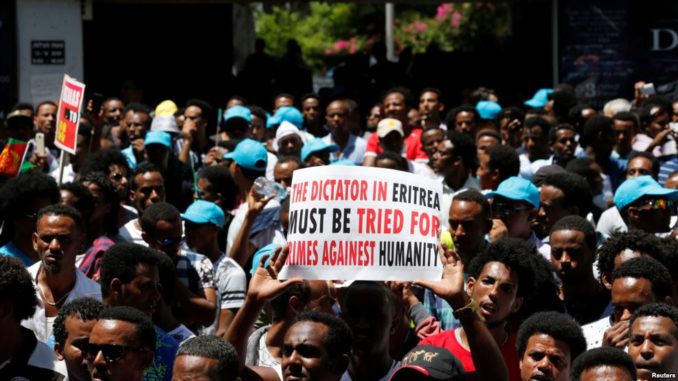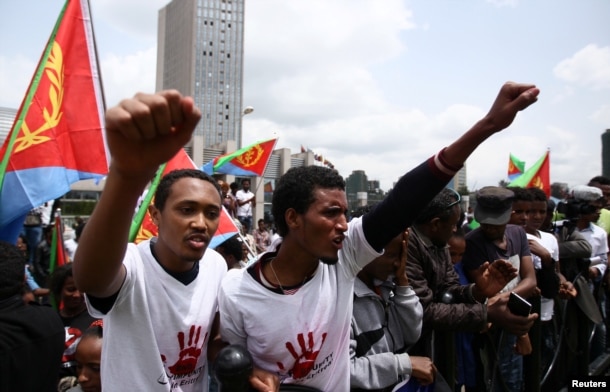
A U.N.-backed commission assigned to investigate human rights violations in Eritrea is calling for a tribunal or a special court system to hear allegations of crimes by Eritrean leaders.
A U.N. report alleged last June that the leaders of the Eritrean government have committed crimes against humanity over more than two decades.
In its report, the commission of inquiry outlined evidence of forced disappearance, torture, indefinite imprisonment without trial and other inhumane acts including extrajudicial executions, according to Sheila Keetharuth, a former member of the three-person commission and the first U.N. special rapporteur appointed to the country.
“What we recommended among others … an array of recommendations one of them being the referral to the [International Criminal Court], another one being that the African Union establish an accountability mechanism and there are things which could be used such as universal jurisdiction and other accountability [measures] in order for people of Eritrea who have suffered human rights violations to get justice,” she told VOA.
The work of the commission has ended and the report presented is now in the hands of the U.N. Human Rights Council.
The commission chairman, Mike Smith, told VOA in June that the findings should pass to the Security Council because only the Council has the power to make referrals to the International Criminal Court.
The commission of inquiry has been criticized for allowing anonymous testimony and lacking corroborating data or hard evidence. The commission gathered testimony from 833 Eritreans in 13 countries and received about 160 written statements in order to get the fullest picture possible.

FILE – Eritrean refugees chant slogans as they participate in a demonstration in support of a U.N. human rights report accusing Eritrean leaders of crimes against humanity in front of the Africa Union headquarters in Ethiopia’s capital Addis Ababa, June 2016.
“We have relied on primarily information from real victims of human rights violations and this has been done in confidential interviews,” she said. “It’s very important that one needs to understand that these are confidential interviews because otherwise we would have put those who approached the commission with their stories or those we talked to in a situation where there are possibilities that reprisals would have been taken against them… we looked at what was available and we made our conclusions based on that.”
Keetharuth also said the commission was denied permission to gather evidence in Eritrea, hampering its ability to operate.
Eritreans divided over report
At an October 27 U.N. meeting, Eritrean Presidential Adviser Yemane Ghebreabdenounced the report and said that he sees “little value in entering into a polemic with a clearly biased special rapporteur.”
Eritreans abroad remain divided over the findings of the report. Sirak Bahlbi, a government supporter and the ruling party organizer abroad tweeted “victimizing Eritrea has become a blood sport for Sheila Keetharuth for the pleasures of the U.S. State Department, the European Union,” and missions at the U.N. including the U.S., Germany and Britain.
Victimising #Eritrea had become a blood sport for @SheilaBK for z pleasures of @StateDept @UKUN_NewYork @AmbassadorPower @EUatUN @GermanyUN
— Sirak Bahlbi (@SirakBahlbi) October 29, 2016
Jemil Aman was part of a demonstration by Eritreans in New York in support of the commission’s report and its recommendation.
“The government is lawless and operating without a constitution,” he told VOA’s Tigrigna Service. “Human rights are being violated, our children are exiled and are dying in the sea in thousands and their organs are being sold in the Sahara desert. This is all because of the [Eritrean] government and the regime.”
